As the days get shorter and the nights get colder, it can be challenging to know what to expect from the plants in your garden. Take your herbs, for example. Are plants like rosemary cold-hardy? How can you prepare them for the coming winter?
Most varieties of rosemary are cold-hardy. The strands that can stand up best against the winter cold include:
- Alcalde
- Arp
- Athens Blue Spire
- Madalene Hill
Rosemary's built-in hardiness makes it a boon to the cold-weather gardener, but natural hardiness only goes so far. If you want to get ahead of the curveballs winter might throw your way, you can take steps to winterize your garden before the cold sets in.
These preparations can protect your garden from undue stress and protect perennials from delayed growth in the coming year.
Is Rosemary Cold Hardy?
Before you ask yourself whether or not rosemary is the cold-hardy herb for your winter garden, you have to determine what variety of rosemary you have in your yard.
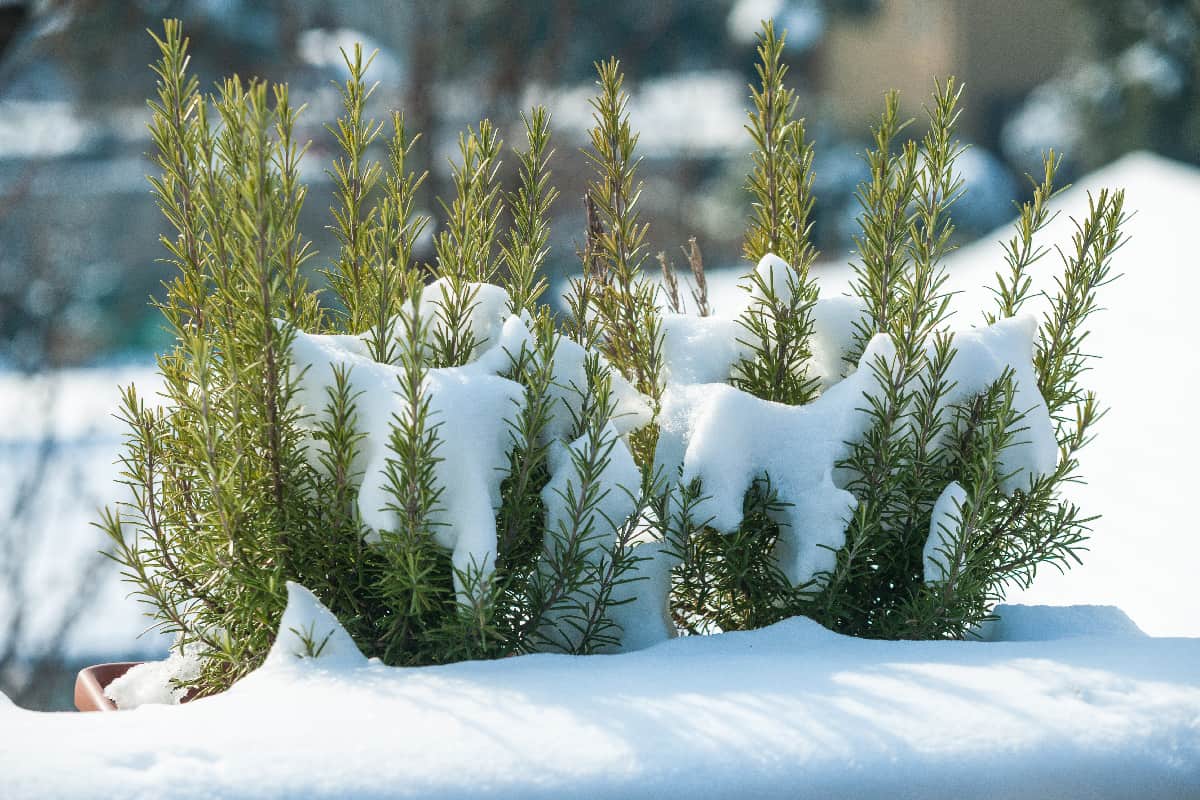
This Mediterranean-based herb comes in a range of forms, many of which can withstand colder temperatures. The most common types of rosemary to find in the United States' growing zones include:
- Alcalde
- Arp
- Athens Blue Spire
- Madalene Hill
It is usually not in the best interest of gardeners in Zones 5 or less to bank on year-round rosemary. Even the hardiest strands of rosemary begin to falter when temperatures drop to -10 degrees Fahrenheit or below.
Of the aforementioned strands of rosemary, you can count on alcalde to hold up best against winter's coldest days. Arp and Athens Blue Spire do best in temperatures that stop dropping at -5 degrees Fahrenheit.
Finally, Madalene Hill is the least hardy of the North American rosemary strands - but even it can hold up against the colder weather well enough.
Madalene Hill needs a bit of a bolster if the temperature drops below 0 degrees Fahrenheit. Still, it continues to provide your home access to fresh herbs throughout the long winter.
Questions to Ask Before Preparing Your Garden for Winter
Natural hardiness does a lot of work for the strands of rosemary you choose to grow in your garden. There are steps you can take, though - and questions you can answer - that can protect the whole of your garden from the coming winter.
Get this information on paper ahead of time, and you can ensure that the coming spring is as fruitful, if not more so than the past year's.
What Herbs Can Survive the Winter?
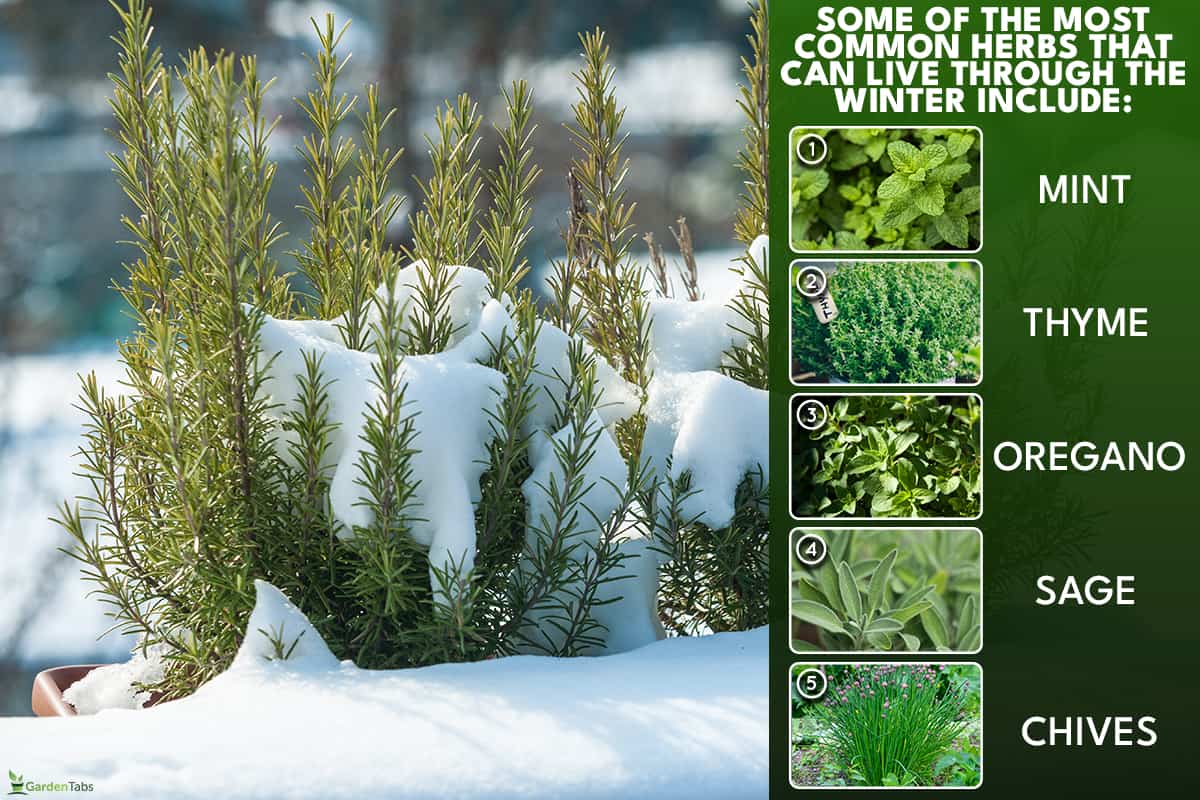
Rosemary is far from the only herb that can live through the winter. Other perennials go dormant as the colder months of fall hit. Once winter passes and spring comes anew, these herbs pop back up - often with more growth than they had the year before.
Some of the most common herbs that can live through the winter include:
- Mint
- Thyme
- Oregano
- Sage
- Chives
Some of these herbs grow wild around larger lawns. Others require deliberate cultivation. Either way, you can keep an eye out for these herbs along with your rosemary. Once you understand how they react to the cold, you can better watch for them to return in the spring.
How Can You Winterize Your Garden?
Winterizing your garden lets, you keep your perennials in good health for the year to come. The steps you take to prevent the winter cold from reaching your garden will vary depending on where in the world you live.
Should you live in climes that see little to no snow, for example, you may not have to worry about placing mulch or tamping down your beds.
If temperatures in your area rarely drop below 30 degrees Fahrenheit, you may not even have to move plants like rosemary indoors.
You should, however, always cover your plants if you expect the weather to drop below 28 degrees Fahrenheit for more than five hours at a time.
Gardeners who live in environments that see frequent and heavy snow need to take more concentrated steps to protect their gardens from harm.
Should you live in such an environment, make sure you have mulch set down throughout your beds as early as late September. As temperatures begin to take more dramatic dips, you can place a tarp or other breathable but warm materials over your garden.
You should also prepare to remove annuals from your garden. Annuals are plants that will only grow for a year at a time and that, come spring, will need to be replaced.
If you leave your annuals in your garden, the resulting plant deaths can impact the renewed growth of perennials in the spring.
Can You Transplant Plants to Move Them Inside?

You do have the option to transplant any plants that you would prefer to keep alive into indoor pots during the winter. Before you commit to this course of action, however, be prepared for the kind of service your plants may require to remain full and lush.
You may need to establish a specific part of your home as your "plant den," particularly if the plants you are transplanting need to remain in a warmer-than-average environment.
It is in your best interest to pre-prepare the pots you intend to transplant sensitive plants into before you get to digging. Make sure you research what pH your plants prefer and what dirt might suit them best throughout the colder months of the year.
Establishing the aforementioned "plant den" before transplanting your plants can also help you limit the stress your plants might otherwise be under.
You should also make a plan for transitioning your plants back to traditional beds with the coming of spring. Make sure you have applied the appropriate amounts of fertilizer, for example, to your plant's old plot before undoing your winterization efforts.
When Should You Expect to See Your Plants in the Spring?
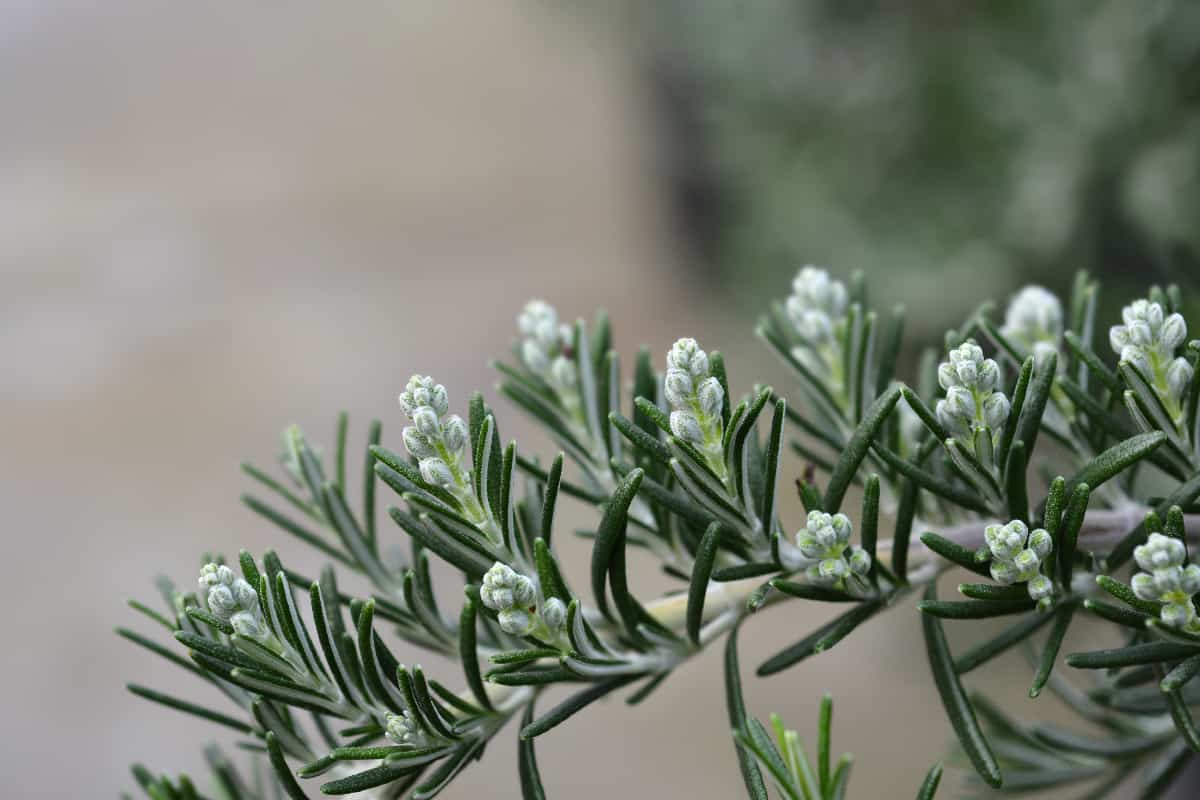
Perennials like rosemary take their time coming back to the world after a cold winter. If you are concerned as to whether or not your rosemary has survived winter's colder weather, you will want to know when to start looking for buds in your hardy garden.
Unfortunately, rosemary's return date is not consistent. In many cases, the month in which your rosemary may begin to sprout can vary based on the zone that you are in.
In general, however, you can start watching for rosemary sprouts in early April. If you live in a warmer climate, you may spot these sprouts as early as late March.
Once you notice your sprouts starting to appear, make sure you take steps to facilitate your rosemary's return. Clear away old and ineffective mulch and cover your beds before any cold snaps.
What Extra-Garden Tasks Can Keep Your Garden Safe From Cold Weather?
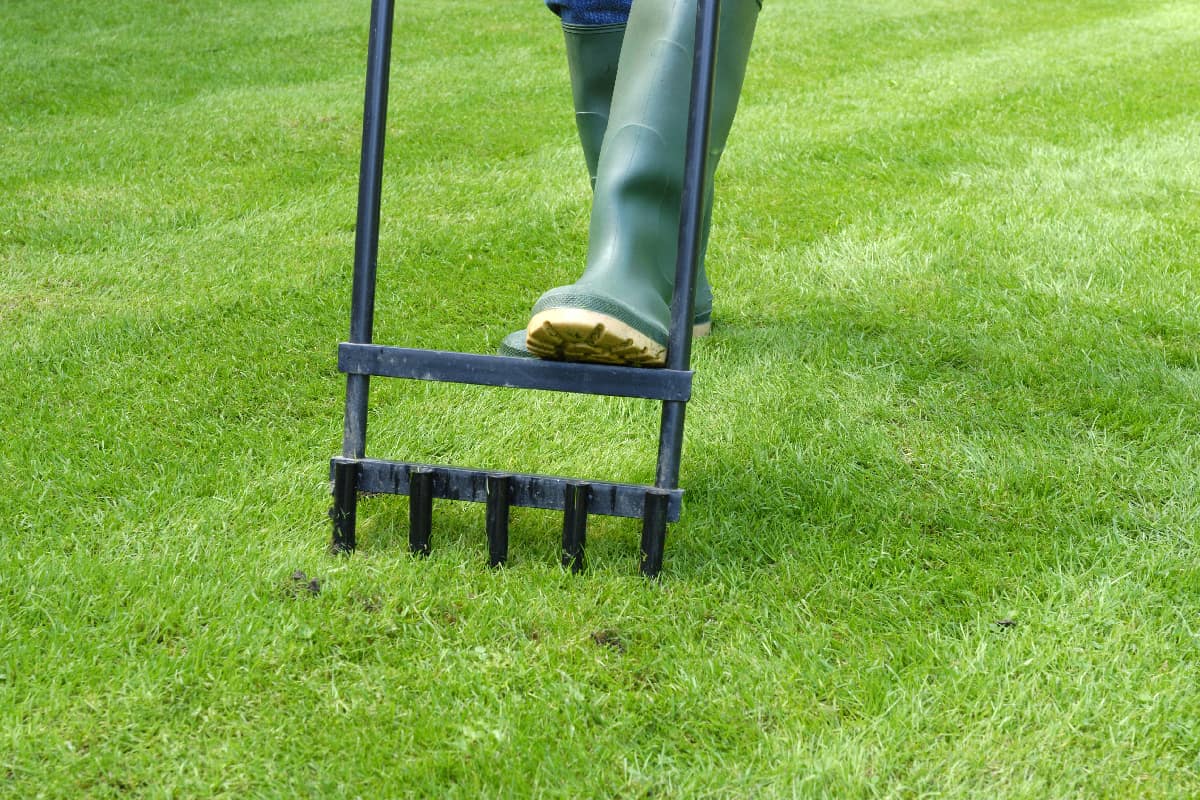
The tasks that protect your garden from winter's chill do not all have to center on your garden. Simpler tasks, like disconnecting your hoses, can also ensure that your land stays healthy.
When you prevent your hoses from freezing, for example, you prevent pressure explosions that might otherwise disrupt the root systems around your garden.
This goes for hoses on the side of your house and any irrigation system you may have set up beneath your garden.
Similarly, aerating your lawn can keep nutrients flowing through your dirt even as temperatures drop. If you expect snow this winter, clear away any leaf piles or debris long before the first snow falls.
If you let piles of debris fall victim to the weight of the coming snow, you may inadvertently kill off any growing underneath that debris.
As such, it is equally important to ensure that any mulch you place in your beds suits your zone and is not spread too thickly above your plants.
You can work with a local landscaper to address any concerns you may have regarding your lawn before this winter season.
Preparing Your Garden for Winter Promises a Prolific Spring
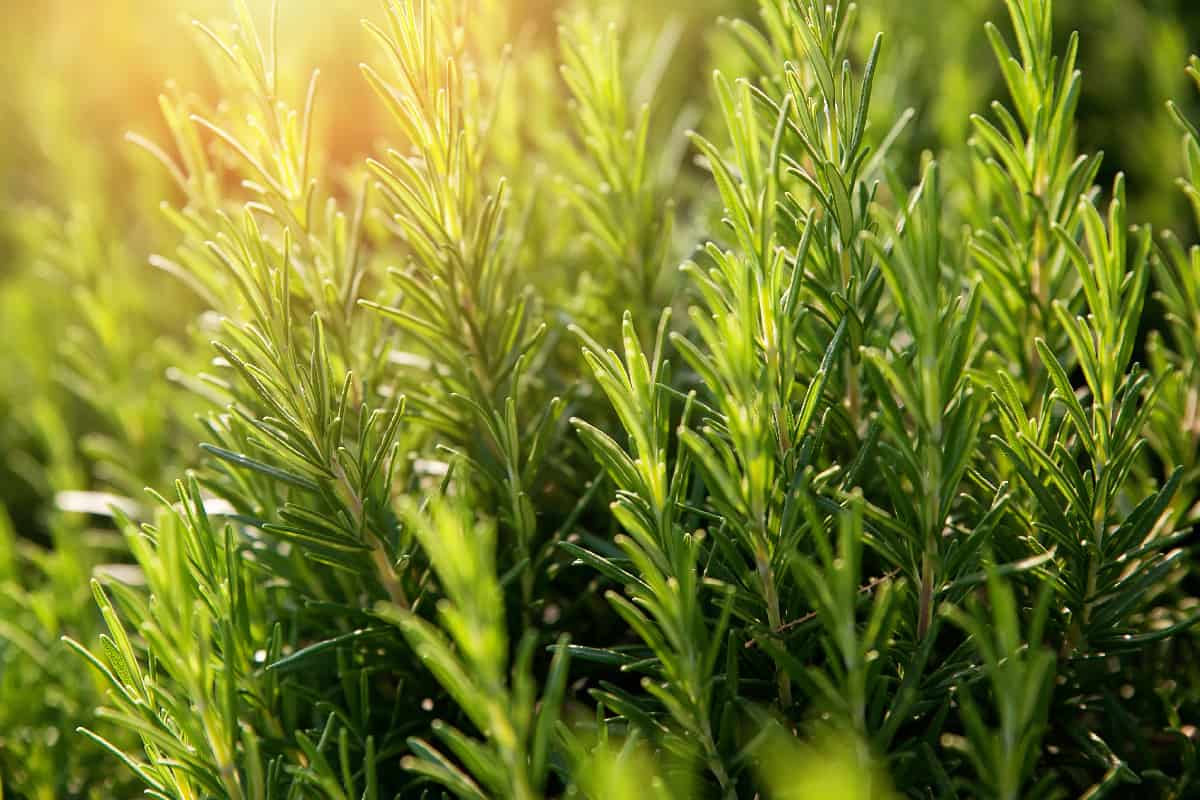
Rosemary is one of many winter-hardy herbs you can foster in your garden or yard as temperatures drop. That said, do not bank on a plant's hardiness as you go into this winter. Make sure you take steps to winterize your garden and protect your more sensitive plants.
The more care you take while preparing your land for the coming cold, the more prolific the growth you see in the coming year will be.
